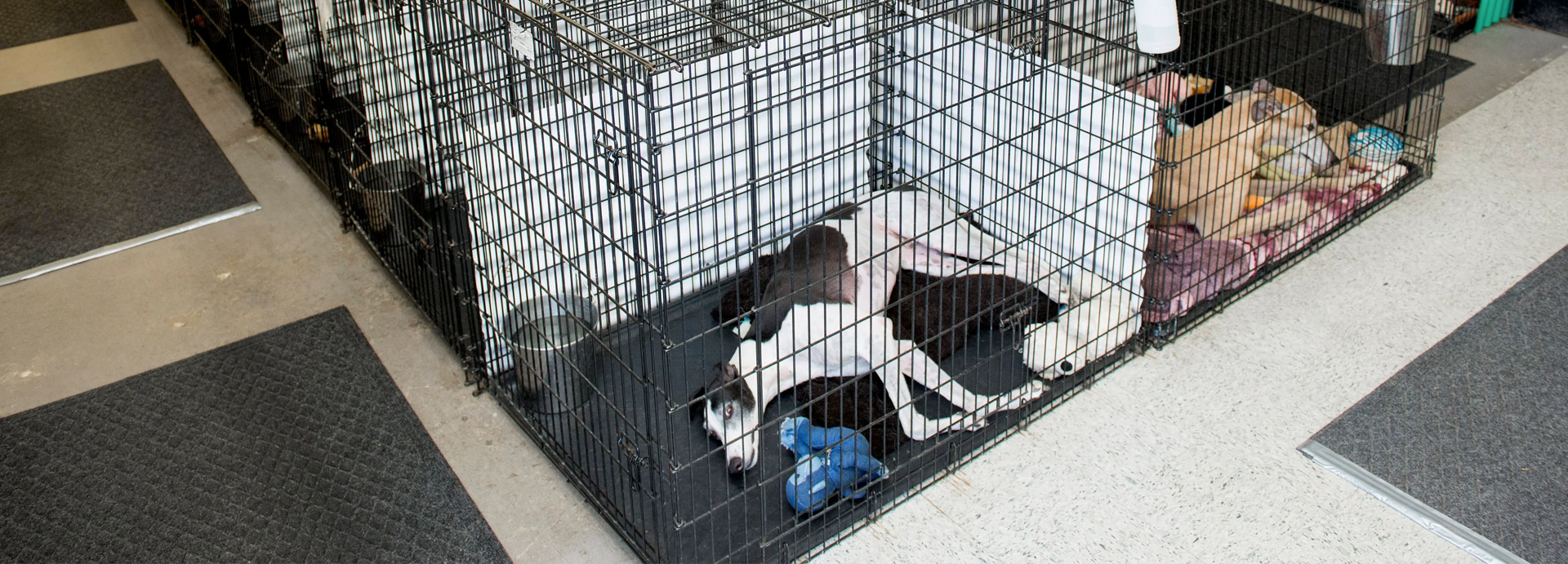The days of captive “blood slave” donor dogs may soon be over, forcing major change in how life-saving animal blood is collected in California — but only if the governor signs a hard-fought bill that’s headed to his desk.
Currently, only “closed colony” commercial blood banks are allowed to operate in the Golden State. One of the nation’s largest — Garden Grove’s Hemopet — rescues greyhounds from the racing industry and keeps them on site for a year or more, tapping their veins every couple of weeks before finding them permanent homes.
Hemopet, a nonprofit, had revenue of $3.9 million from the sale of blood products in 2019, according to its tax returns.
Critics say the practice is cruel, obsolete and inhumane, and have been pushing California to embrace a human-style blood donation system for animals for years. Jean Dodds, Hemopet’s founder, countered that closed colonies ensure the health of the animals and the safety of their blood, and said the greyhounds are well-treated.
Other states have allowed community-based clinics to collect blood from pets for decades with little drama, leaving California as the only state in the nation to still require closed colonies. Assembly Bill 1282, the California Pet Blood Bank Modernization Act, would change that. Veterinarians could set up community blood banks, and healthy neighborhood dogs and cats could step into the void left by captive greyhounds, then go home with a packet of treats. It sailed out of the Senate on Wednesday, Sept. 1.
“This has been a three-year animal welfare policy reform effort that is now one step away from being implemented. I am elated that we are finally on the verge of replacing a long-standing inhumane practice and with a model program,” said Assemblyman Richard Bloom, D–Santa Monica, one of the bill’s authors, in a statement.
The effort was bipartisan, with Senate Republican Leader Scott Wilk, R-Santa Clarita, as another co-author. “As they say, the third time is a charm,” Wilk said in a statement. “This is a long overdue and needed reform for commercial animal blood banks. I am glad to see this change — that will save pets’ lives — finally become law.”
The closed colonies wouldn’t, and couldn’t, disappear immediately. Hemopet and its main competitor, Animal Blood Resources International, provide the majority of animal blood products circulated in the United States. The bill would void their licenses 18 months after data shows that that volunteer collections produce as much animal blood as closed colonies.
Shannon Keith of the Beagle Freedom Project is confident that Gov. Gavin Newsom will sign this bill. In 2019, Newsom rejected an earlier effort because it didn’t have a timetable for phasing out closed colonies — but this bill does.
“I see things progressing smoothly,” she said. “We already have major veterinary clinics and humane societies on board to jump into action and begin the volunteer blood banking process. They are excited about it, as are the other clinics we have spoken to about this, who have been faced with a lack of blood in the past and had to use a dog at the clinic.”
Judie Mancuso, founder and president of Social Compassion in Legislation, has also been spearheading the effort.
“After three years of working on opening up community blood banks for animals and phasing out the warehousing of caged canine blood-slaves in the state of California, we are elated the full Senate voted unanimously to pass this bill …. and look forward to Gov. Newsom signing this into law, opening up new business in our state while treating animals humanely,” Mancuso said in a statement.
Community blood banks would be allowed to be licensed as of Jan. 1, 2022, and the California Department of Food and Agriculture would administer the new licensing program and collect data on blood production from both types of blood banks, said Nick Sackett, director of legislative affairs for Social Compassion In Legislation.
The hope is that the closed colonies will voluntarily transition to community collection before that, he said. Officials with Hemopet and ABRI did not immediately respond to requests for comment.
Others who signed on to the bill are Assemblymen Kevin Mullin, D–San Mateo, Devon Mathis, R–Visalia, and Chad Mayes, I–Yucca Valley.
Original Article: The Orange County Register

